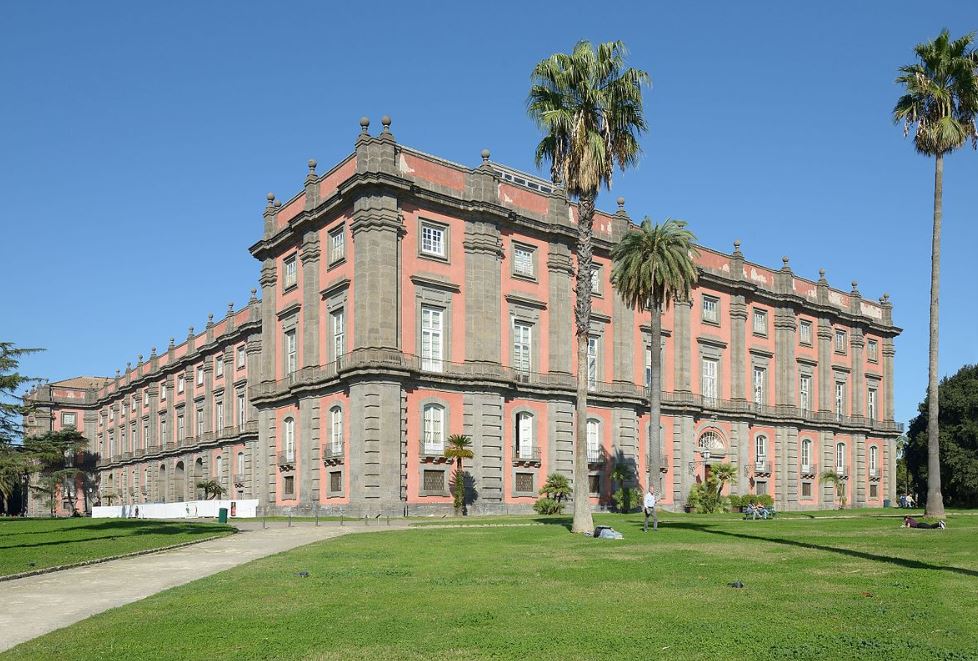See Naples and Die or “Vedi Napoli e poi muori” might be a phrase that you have heard somewhere, and I’m happy to say you don’t need to take it literally.
It simply means that you have to see the beautiful city of Naples and admire its magnificent architectural landscape once in your life.
The capital city of the Campania region in southern Italy is also the third-largest city in the country with a population of over 3.1 million inhabitants in its metropolitan area.
The modern-day city was founded by the Greeks in the 9th century B.C., even though an even older settlement was already present in this location.
Naples became an ally of the Roman Republic and the ancient Romans continuously respected the city as one of the leading centers of ancient Greek culture.
The city was the main center of both the Kingdom of Sicily and the Kingdom of Naples and it was the second-largest city in Europe in the 17th century after Paris.
With a history of over 2,800 years, it’s home to several UNESCO World Heritage sites, including the entire “Historic center of Naples.”
Without further ado, in this article, you’ll discover some of the most famous buildings in Naples.
1. Royal Palace of Naples
The Royal Palace of Naples is one of the most prominent landmarks in the heart of the city and emphasizes the city’s historical importance.
It was constructed in the 17th century and served as one of the 4 residences that the House of Bourbon used while they reigned the Kingdom of Naples and the Kingdom of the Two Sicilies.
This amazing palace was constructed on the location of a former building and incorporates both Italian Baroque and Neoclassical architecture.
It was only in 1734, however, when King Charles III of Spain arrived in Naples, that it became the official royal residence of the Bourbon rulers. Today, it serves as a popular tourist attraction in Naples.
Official website: Royal Palace of Naples
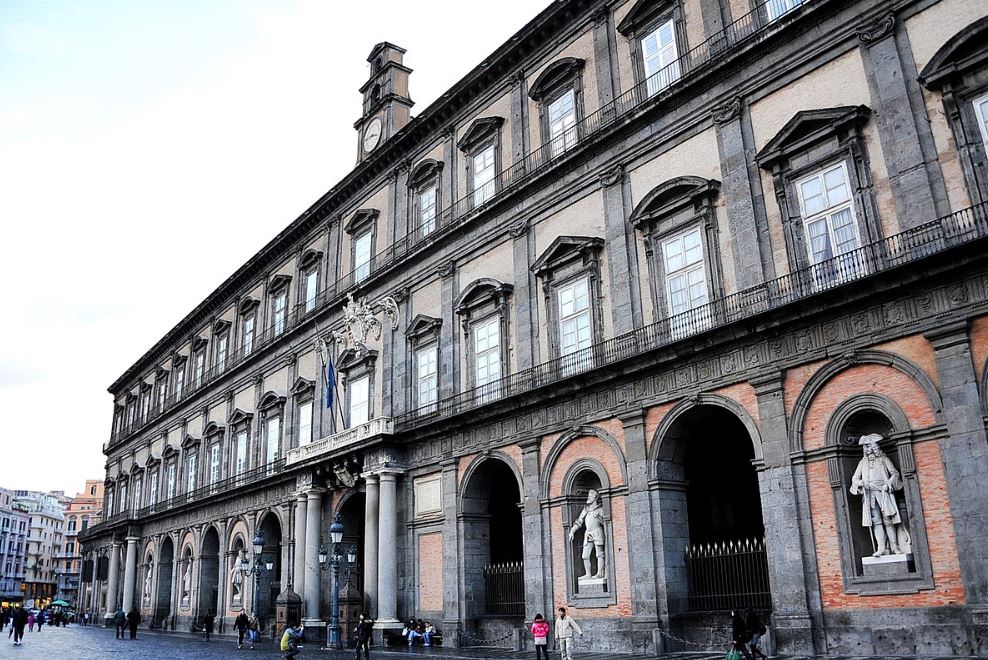
2. Galleria Umberto I
Galleria Umberto I is a wonderful shopping arcade that is located just north of the royal palace in the heart of the city.
It resembles the Galleria Vittorio Emanuele II, a very similar multi-story historic shopping mall that is one of the most famous landmarks in Milan.
The building was completed between 1887 and 1890 and was the centerpiece of a major redevelopment program in Naples known as the “Risanamento” (making it healthy again).
Like its equally famous counterpart in Milan, it was named after the King of Italy at the time, Umberto I, the king between 1878 and his assassination in 1900.
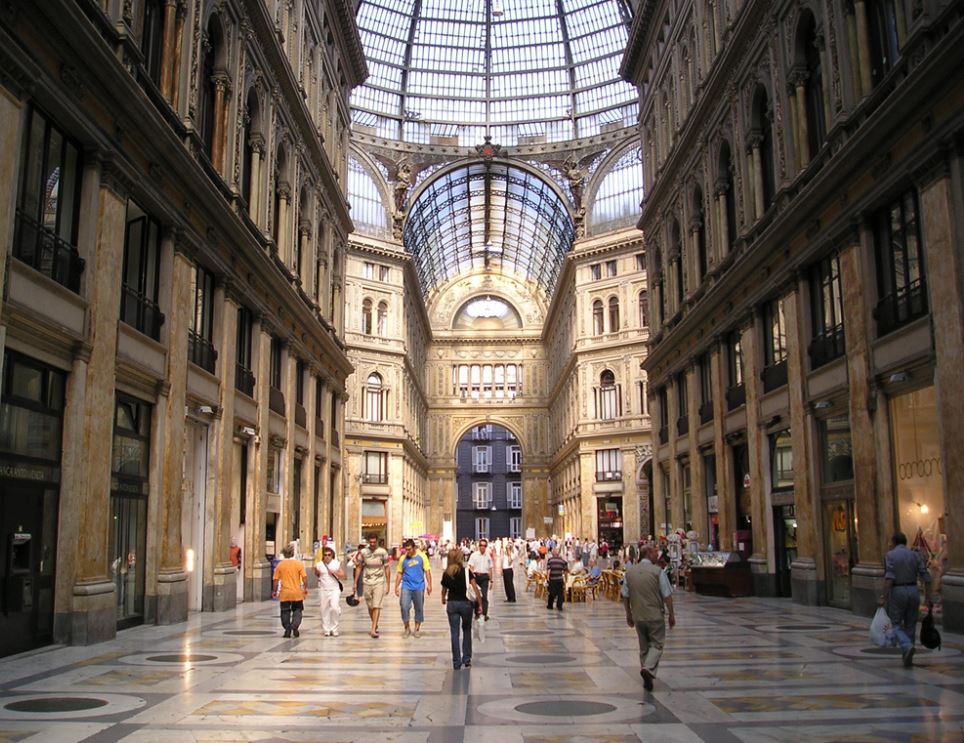
3. Teatro di San Carlo
The Teatro di San Carlo is a building in Naples that is squeezed in between the Royal Palace and the Galleria Umberto I.
This beautiful opera house was constructed in 1737 and adjoins the Royal Palace to the north, something that highlights the fact that it was originally part of the palace complex in central Naples.
It was commissioned by Bourbon King Charles VII of Naples and replaced an even older theater called the Teatro San Bartolomeo, a venue that had been operational since 1621.
The original opera house was destroyed by fire in the early 19th century and it suffered major damage during the bombing of Naples in 1943. It has, however, been restored to its former glory and was completely renovated between 2008 and 2009.
Official website: Teatro di San Carlo
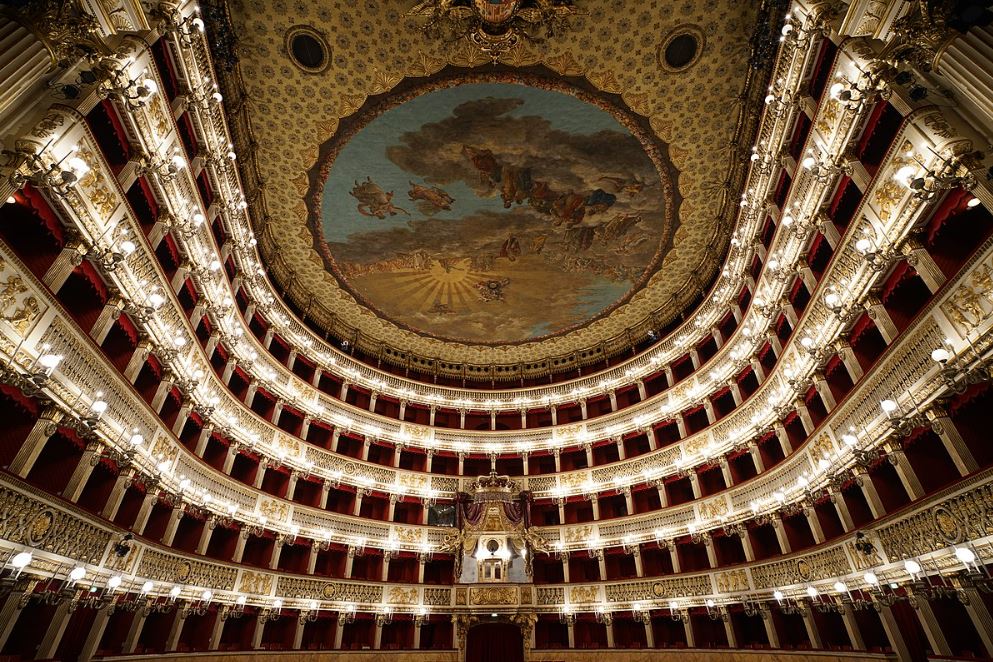
4. San Francesco di Paola
San Francesco di Paola is a beautiful church that is located on the western side of the Piazza del Plebiscito, one of the most famous squares in the heart of the city.
What’s remarkable about this square and church, which are located just west of the Royal Palace, is that they were initially intended to serve as monuments in honor of Napoleon Bonaparte.
The row of collonades and the monumental building were commissioned by King Joachim Murat of Naples, Napoleon’s brother-in-law.
The Neoclassical structure was eventually completed as a church by Ferdinand I, King of the Two Sicilies, in 1816, shortly after Napoleon’s final Fall in 1815.
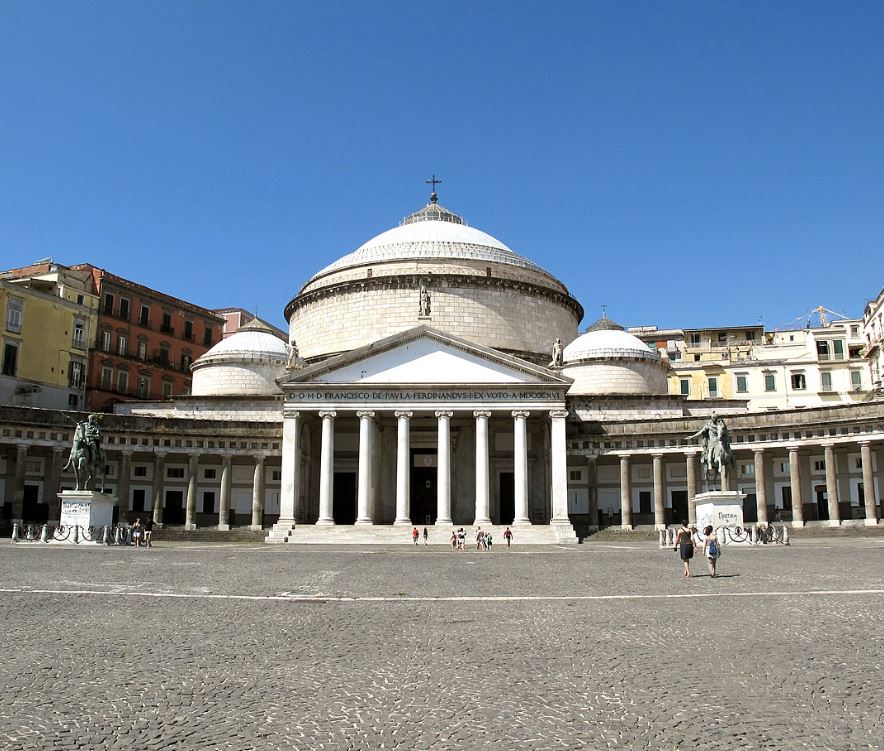
5. Castel Nuovo
Castel Nuovo or “New Castle” is a famous castle that can easily be described as one of the most imposing buildings in Naples.
The original version of the castle was completed in 1279 and it served as one of the royal residences of the rulers of Naples until the year 1815.
One of the most striking features of the castle is the triumph arch that was constructed between two of the distinctive watchtowers. This element was completed in the year 1470.
Today, the building houses several institutions and also serves as a tourist attraction in the form of a civic museum that was established in the early 1990s.
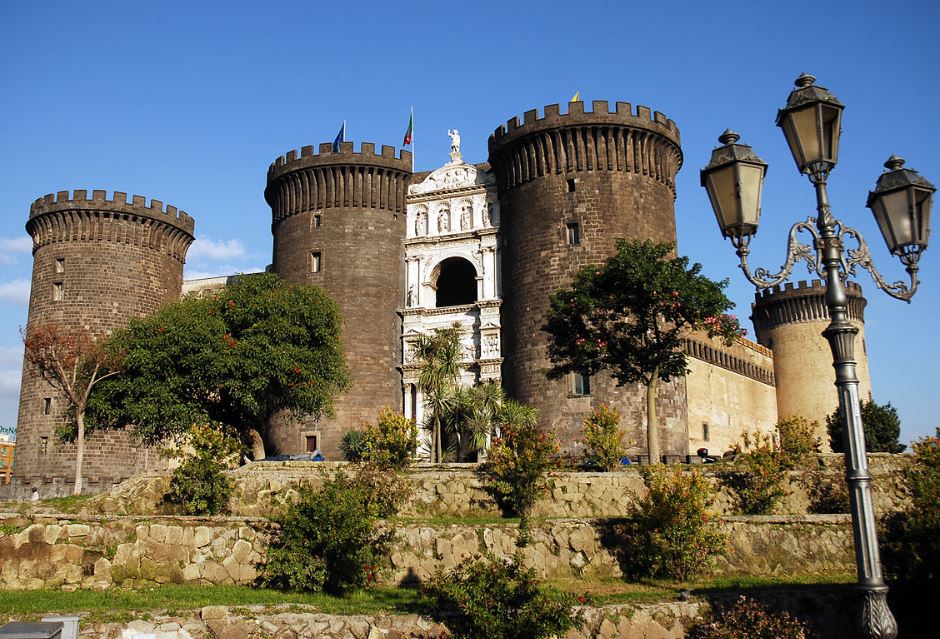
6. Castel dell’Ovo
Castel dell’Ovo or “Egg Castle” is another castle in Naples that is located just south-southwest of the city center and not too far from the Castel Nuovo.
The castle’s name was derived from a legend related to the ancient Roman poet Virgil who presumably put an egg in its foundations. Whenever this egg is broken, the castle would allegedly be destroyed.
Originally constructed on an island called “Megaride,” it now stands on a small peninsula in the Gulf of Naples and provides sweeping views of the city.
It’s the oldest castle in Naples as it has a history that goes back to the 6th century B.C. The center of the ancient Greek city was constructed around this location.
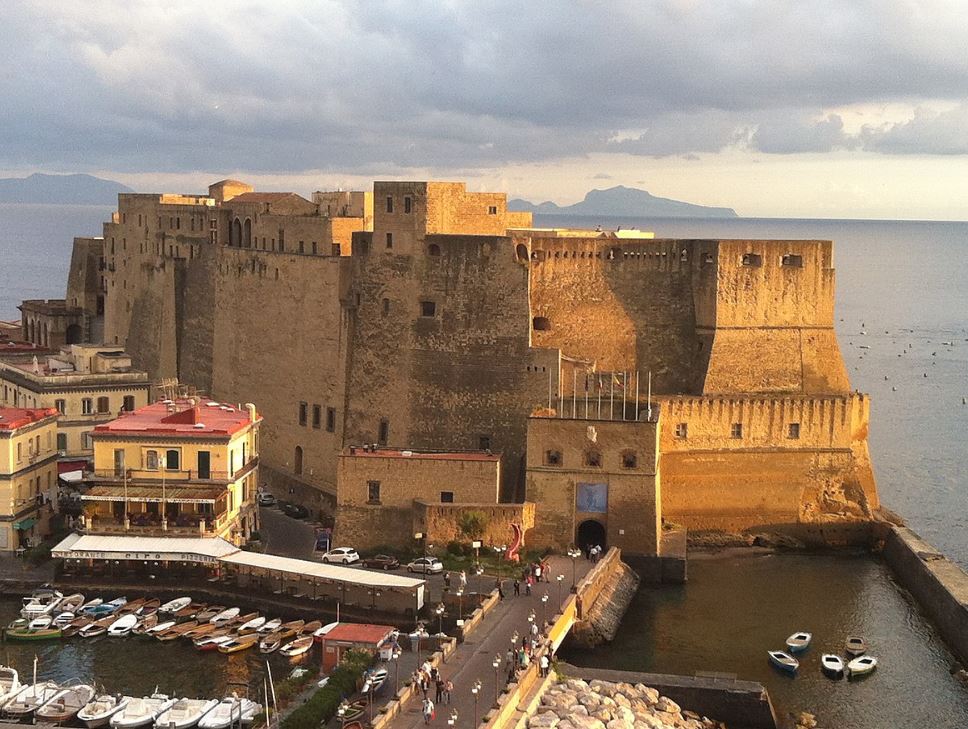
7. Toledo Metro Station
The Castel dell’Ovo is one of the oldest buildings in Naples, and the Toledo Metro Station is the newest in this list of famous landmarks in the city.
The station is part of Line 1 of the Naples Metro system and is one of 3 such lines that provide easy transportation in this large city in southern Italy
Named after the nearby Via Toledo, one of the city’s major thoroughfares and shopping streets, it’s without a doubt the most impressive of all metro stations in Naples.
It opened in 2012 and won the 2013 LEAF Award as “Public building of the year,” an international architectural competition that rewards innovation.
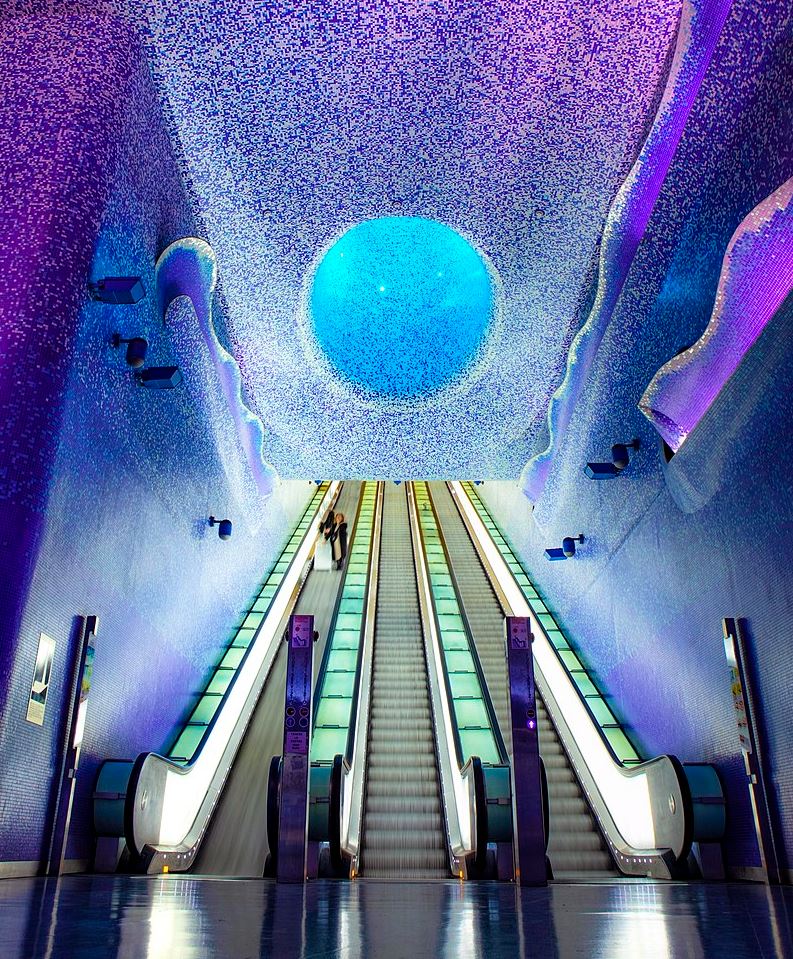
8. Naples Cathedral
Naples Cathedral is the common name of a Gothic cathedral that is officially known as the Cathedral of the Assumption of Mary or “Cattedrale di Santa Maria Assunta.”
Located in the center of the historical heart of Naples, it’s the main Catholic cathedral in the city and serves as the seat of the Archbishop of Naples.
The construction of the cathedral started in the 13th century and it was built on the foundation of two earlier churches that once stood there.
The Gothic Revival façade was the final addition in the 19th century, even though the original 15th-century portal was retained during this project.
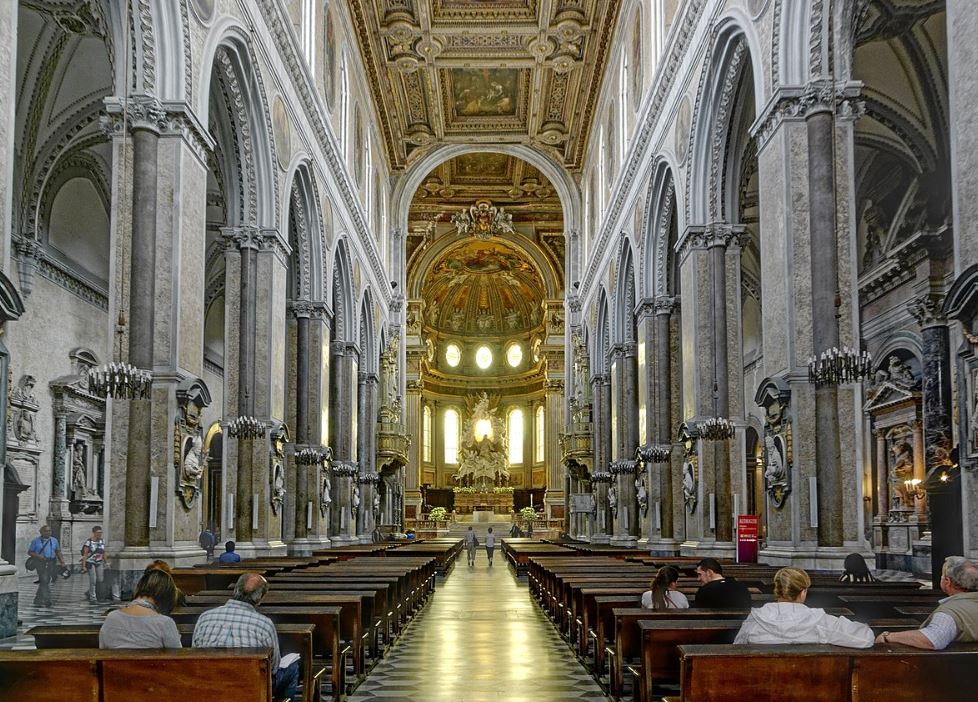
9. Basilica di San Paolo Maggiore
The Basilica di San Paolo Maggiore is another fascinating church in Naples that is located just southwest of Naples Cathedral in the heart of the city.
This Baroque building was constructed on the ruins of the Temple of the Dioscuri, an ancient Roman temple that was built here in the 1st century A.D.
What’s amazing about this is that two Corinthian pillars of this former temple stand in front of the building and are linked to the church by a small beam.
The entire tympanum featuring 6 Corinthian columns stood in front of the church until 1688 but this was destroyed during an earthquake that year.
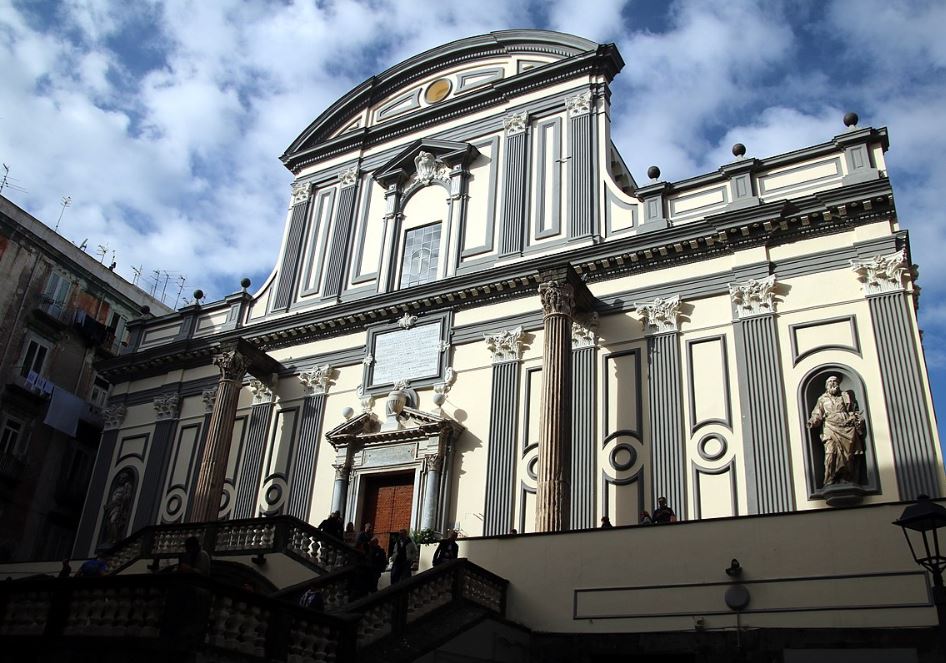
10. Museo di Capodimonte
The Museo di Capodimonte is the most popular art museum in Naples as it houses an impressive collection of fine art.
It’s located in the northern part of central Naples and is housed in the imposing Palazzo di Capodimonte, the former summer residence of the Bourbon rulers.
The palace was commissioned by King Charles III in 1738 after he had inherited the impressive Farnese collection of art from his mother, Elisabetta Farnese.
Almost the entire first and second floors of this large palace are used to house the Galleria Nazionale (National Gallery) which mostly consists of the Farnese Collection.
